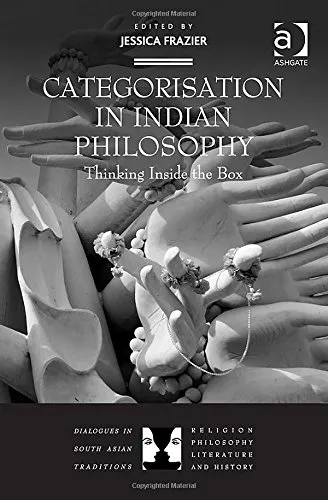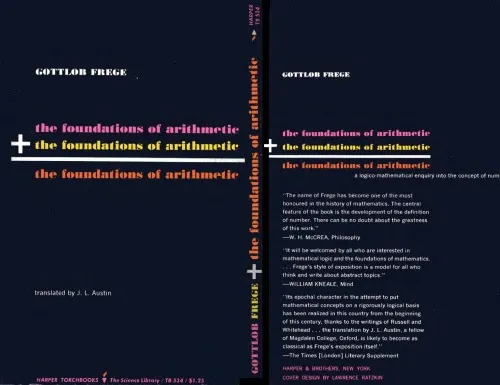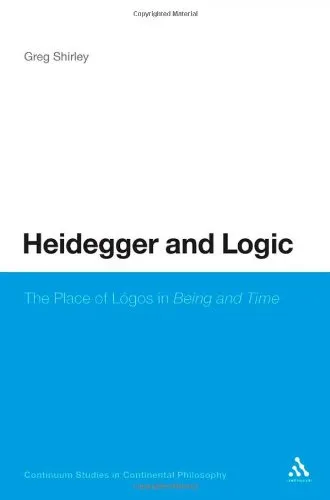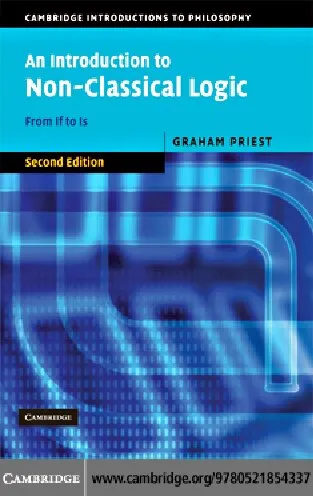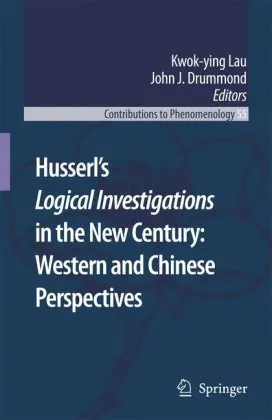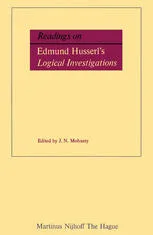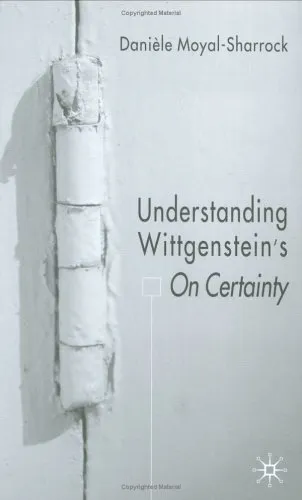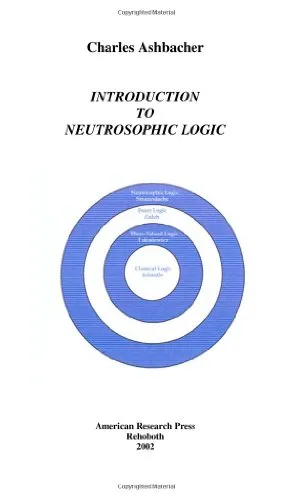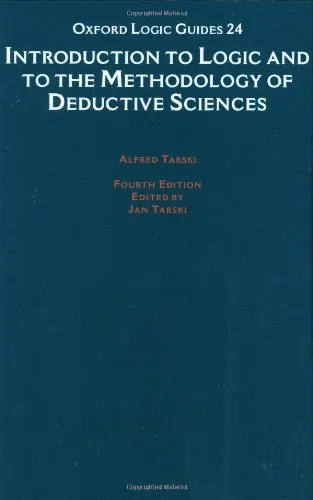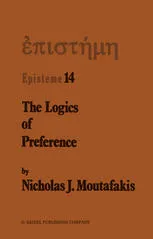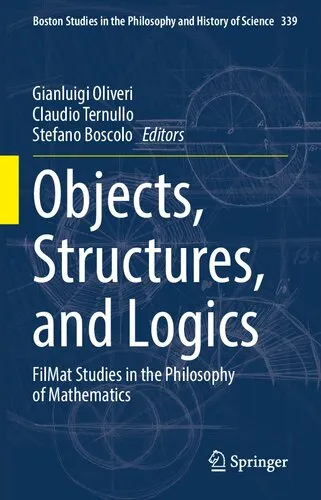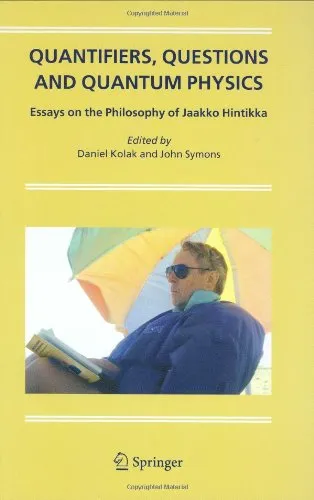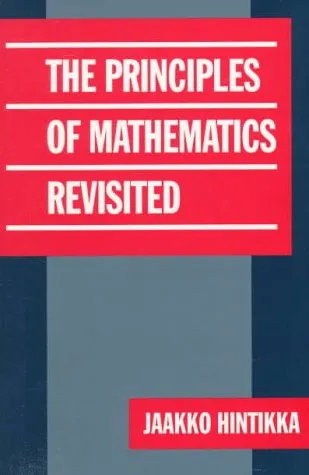Categorisation in Indian Philosophy: Thinking Inside the Box
4.5
بر اساس نظر کاربران

شما میتونید سوالاتتون در باره کتاب رو از هوش مصنوعیش بعد از ورود بپرسید
هر دانلود یا پرسش از هوش مصنوعی 2 امتیاز لازم دارد، برای بدست آوردن امتیاز رایگان، به صفحه ی راهنمای امتیازات سر بزنید و یک سری کار ارزشمند انجام بدینکتاب های مرتبط:
معرفی کتاب: Categorisation in Indian Philosophy: Thinking Inside the Box
کتاب Categorisation in Indian Philosophy: Thinking Inside the Box از اثرات مهم و تاثیرگذار در حوزه فلسفه هندی و مطالعات مفهومی است. این اثر به بررسی نحوه دستهبندی و کدبندی مفاهیم در فلسفه هندی میپردازد و به عمق اندیشههای فلسفی در مورد این پرسش مینگرد که چگونه انسانها برای درک و نظمبخشی به جهان دست به دستهبندی میزنند. هدف اصلی این کتاب شناخت مفهوم "دستهبندی" در سیستمهای فکری هند است، و این کار را در چارچوب مفاهیمی مانند Dharma، آرای Vedānta، Nyāya و Samkhya انجام میدهد.
خلاصهای از کتاب
در این کتاب، نویسنده تلاش میکند تا روابط پیچیدهای که بین دستهبندیها و تفکر فلسفی وجود دارد را آشکار کند. NLP (Natural Language Processing) و مقولهبندیهای زبانی در فرهنگ هندی از جمله موضوعات تحلیل شدهاند. نویسنده با بهرهگیری از منابع و متون فلسفی کهن هندی مانند Upanishads، Bhagavad Gita و دیگر متون، نشان میدهد که چگونه یک سیستم منسجم ساپورتکننده تفکر فلسفی با استفاده از چارچوب دستهبندی به وجود آمده است.
در بخشهای مختلف کتاب، مفاهیمی مانند Samanya (کلیت)، Visesa (جزئیات) و نظریات مربوط به Padārtha-ها بررسی شدهاند. نویسنده همچنین نقش منطقی دستهبندی را برای ارائهٔ استدلالات و تعریفها در Nyāya و Vaisheshika تحلیل کرده است. تحلیلهای کتاب فراتر از یک بررسی تاریخی رفته و ماهیت شناختی و روانشناسی انسان در سازماندهی مفاهیم را بررسی میکند، که این امر آن را به مرجعی مهم در زمینه مطالعات میانرشتهای تبدیل کرده است.
نکات کلیدی کتاب
- فهم فلسفه دستهبندی در بافت تمدن هندی
- تجزیه و تحلیل مفاهیمی نظیر Dharma و Padārtha
- نقش زبان و منطق در سلسله مراتب مفاهیم
- چگونه فلسفه هندی به دستهبندی به عنوان ابزاری برای شناخت نگاه میکند
- همگرایی این مفاهیم با فلسفه غرب، مخصوصاً در بخش شناختشناسی
جملات برجسته از کتاب
"Dharma is not merely a rule; it is a logic of survival, a category guiding human life through multifaceted realities."
"By categorizing, we not only define the world; we define ourselves in its intricate mesh of meaning."
"Indian philosophers were among the first to systematically analyzse the purpose and limits of categorisation, going far deeper than a merely practical framework."
چرا این کتاب مهم است؟
این کتاب برای علاقهمندان به فلسفه هندی و تمامی پژوهشگرانی که به مطالعات مقایسهای در زمینههای شناختشناسی، زبانشناسی و فلسفه علاقهمند هستند، منبعی ارزشمند است. اهمیت کتاب نه تنها در تحلیلهای دقیق نویسنده از آثار کلاسیک است، بلکه در ارائهٔ مدلی جهانی برای مطالعه مفاهیم گسترده دستهبندی نیز هست. بهویژه در عصری که موضوعات میانرشتهای مانند فلسفه و هوش مصنوعی بسیار برجسته شدهاند، ارتباطات بین مباحث این کتاب و سوالات جدید بخش علمی بسیار برجسته است.
Introduction to 'Categorisation in Indian Philosophy: Thinking Inside the Box'
By Jessica Frazier
Categorisation is one of the most fundamental practices of human thought. It helps us structure the complex world around us, guiding everything from our language to our understanding of reality itself. In 'Categorisation in Indian Philosophy: Thinking Inside the Box', Jessica Frazier takes readers on a profound intellectual journey through the philosophical traditions of India, exploring how ancient thinkers conceptualised the world and its myriad forms. This book sheds light on the shared human instinct to categorise, while honouring the unique methodologies and insights that Indian philosophy provides.
Frazier invites readers to think critically about the "boxes" we impose on the world. How do we map the chaos of reality into order? What principles guide us in arranging entities into categories? And perhaps most intriguingly, what happens when our categories cease to work? By addressing such questions, this book reveals both the creative power and the limitations of categorisation systems, ranging from poetic metaphors to rigorous logical frameworks.
Detailed Summary of the Book
Jessica Frazier divides the book into several thematic explorations. Each chapter examines categorisation as a philosophical tool, tracing its development in Indian traditions such as Nyāya, Sāṃkhya, Vedānta, and Buddhism. She not only focuses on the systematic and formal categorisations used in logic and metaphysics but also delves into more dynamic conceptions of reality expressed through mythology and poetry.
The chapters uncover how Indian philosophers wrestled with paradoxes of existence, unity, and multiplicity. For instance, the Sāṃkhya system's dualistic framework categorises reality into purusha (consciousness) and prakriti (matter), while the Buddhist theory of skandhas (aggregates) deconstructs human existence into ever-shifting elements. The book meticulously explains these intricate systems, demonstrating how categorisation helped philosophers handle vast and abstract concepts.
Frazier also draws attention to the creative, almost artistic, side of categorisation in Indian thought. Taking mythological narratives as examples, she highlights how Indian thinkers framed radically different world-views while implying larger truths about existence. Through this harmonious blend of systematic and intuitive modes of thought, the Indian traditions reveal new possibilities for shaping human ideas.
Key Takeaways
- The act of categorisation is not merely a logical exercise but a creative and philosophical enterprise.
- Indian philosophy provides a plethora of categorisation systems, ranging from dualistic paradigms to fluid, deconstructed views of reality.
- Classifications are shaped by cultural, metaphysical, and spiritual aspirations, revealing the values embedded within them.
- A study of Indian thought inspires us to critically evaluate our own categories and their usefulness in understanding the complexities of life.
- Thinking "inside the box" is not inherently limiting; rather, it can be a tool for insight and innovation when viewed through the right lens.
Famous Quotes from the Book
"Every wall we build to structure our world is also a window, revealing something about ourselves as much as it frames the view of what lies outside."
"To categorise is to create order, but it is also to risk closing off possibilities. Indian philosophers remind us that true wisdom lies in the balance between the two."
"By exploring the ways our ancestors categorised existence, we learn not just what they thought of the world, but who they were."
Why This Book Matters
In the modern age, categorisation remains central to disciplines as diverse as science, technology, literature, and philosophy. Yet our methods are often taken for granted. Jessica Frazier’s book offers a much-needed examination of categorisation through the lens of Indian philosophy, providing both historical insight and contemporary relevance. By exploring the philosophical underpinnings of organisation and classification, she challenges readers to rethink their own assumptions about how we divide and define the world.
This book is particularly valuable for scholars of philosophy, cultural studies, and history, but it also appeals to anyone curious about the intellectual achievements of ancient India. We live in an era of data and systems, and Frazier’s deep exploration reminds us of the human element in everything we categorise and interpret. A true gem for thinkers, researchers, and the philosophically inclined, 'Categorisation in Indian Philosophy: Thinking Inside the Box' is a work that inspires introspection and intellectual growth.
دانلود رایگان مستقیم
شما میتونید سوالاتتون در باره کتاب رو از هوش مصنوعیش بعد از ورود بپرسید
دسترسی به کتابها از طریق پلتفرمهای قانونی و کتابخانههای عمومی نه تنها از حقوق نویسندگان و ناشران حمایت میکند، بلکه به پایداری فرهنگ کتابخوانی نیز کمک میرساند. پیش از دانلود، لحظهای به بررسی این گزینهها فکر کنید.
این کتاب رو در پلتفرم های دیگه ببینید
WorldCat به شما کمک میکنه تا کتاب ها رو در کتابخانه های سراسر دنیا پیدا کنید
امتیازها، نظرات تخصصی و صحبت ها درباره کتاب را در Goodreads ببینید
کتابهای کمیاب یا دست دوم را در AbeBooks پیدا کنید و بخرید
